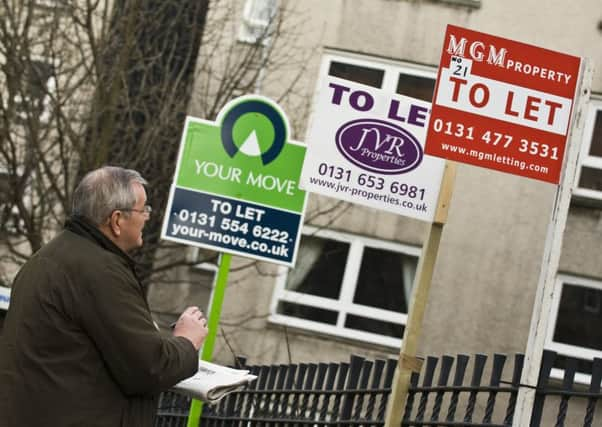Alyson Macdonald: More still to do to improve tenants' lot


Thanks to this change, tenants will be able to feel more confident that they can put down roots in a community, and this will be particularly important for the increasing number of families raising children in rented homes. Over 70 per cent of private sector tenants have moved house within the past two years, and while some move through choice, others have their hand forced by harassment or eviction.
Disrepair is endemic in the private rented sector: a 2015 Scottish Government survey found that 61 per cent of these homes either weren’t weather-tight or had structural faults. Almost one in 20 were of a “condemnatory” standard – in such poor condition that the government believes no-one should have to live in them. But tenants are often reluctant to ask their landlords to carry out repairs because they worry that they could be evicted for complaining, particularly in areas where demand is high and tenants are easily replaced. Security of tenure, and the housing tribunal system which will also be created by the new laws, will help more tenants to stand up for their rights and insist that landlords fulfil their legal obligation to maintain decent standards of repair.
Advertisement
Hide AdAdvertisement
Hide AdThese changes in the law haven’t happened on their own, they are the result of campaigns to improve tenants’ rights. In 2014 I helped to set up the tenants’ union Living Rent because, as a tenant, I had seen the problems of the private rented sector first hand. At the time the Scottish Government was considering the future of the laws around rented housing, and seeing this as an opportunity to make a difference, we mobilised tenants to tell MSPs that better regulation is essential.
Landlords, who rely on weak regulation and a lack of enforcement to ensure their profits, are already claiming that making it easier for tenants to assert their rights will scare off investors and risk putting them out of business. However, if like me you have been following the industry for a few years, this might be starting to sound familiar. Every time the government makes even the smallest concession to tenants’ rights or safety, landlords respond with the same dire predictions, and every time they manage to survive. One of the lessons emerging from the tragic fire at Grenfell Tower is that we can’t always rely on those who own or manage buildings to prioritise tenants’ lives over their own profits. Regulation, and more importantly, proper enforcement, can ensure that landlords take the necessary steps make tenants’ homes safe.
The balance of power may have shifted a little, but there is still a lot of work to be done to translate new laws into real improvements in tenants’ lives. Living Rent is working with local communities to help them support one another in tackling housing problems in their area, and we plan to keep this up until all tenants have safe, well-maintained home.
l Alyson Macdonald is a board member of Living Rent, Scotland’s tenants’ union